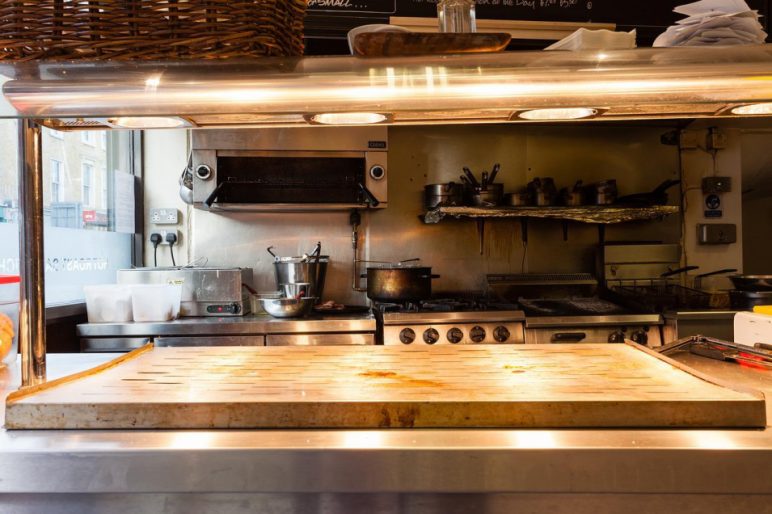Most commercial kitchens share one thing in common: grease.
Grease and oil build-up on floors, walls, appliances, and countertops are an unpleasant fact in commercial kitchens.
“This poses several risks for restaurants, cafeterias, and food manufacturing facilities,” according to Lee Chen, President and COO of ProNatural Brands, manufacturers of citric acid cleaning solutions
Among those risks are the following:
- Fire. Grease is flammable.
- Injury. Grease build-up on floors makes them very slippery.
- Blockage. When heated, grease flows down drains. But as it cools, it solidifies, causing severe drain blockage.
- Fines. Grease build-up in a commercial kitchen is unhealthy, increasing the chances that health inspectors will fine the restaurant or shut it down entirely.
- Infestation. Grease build-up attracts rodents and insects, creating serious sanitation issues.
To prevent these risks, Chen suggests cleaning professionals select powerful – but safer – degreasers.
“These are potentially dangerous cleaning solutions,” says Chen. “Select non-toxic degreasers with minimal environmental toxicity, no VOCs, and which are biodegradable.”
Additionally, Chen suggests the following:
- Read the manufacturer’s instructions before using a degreaser. Not all degreasers are used the same way.
- Always give the product a few minutes to act on the surface; this will save time overall.
- Never mix degreasers with other types of cleaning solutions.
- Before using a new brand, try it on a few surfaces just to make sure.
- Traditional degreasers can release fumes that can burn skin and eyes. Wear safety gear.
- Verify what ingredients are used to make the degreaser. A traditional degreaser may contain potentially harmful ingredients. A citric-acid degreaser will not.
With these points in mind, Chen adds, “Something else to consider is residue. Traditional degreasers may leave a chemical residue on surfaces that attracts soils and contaminants.”









